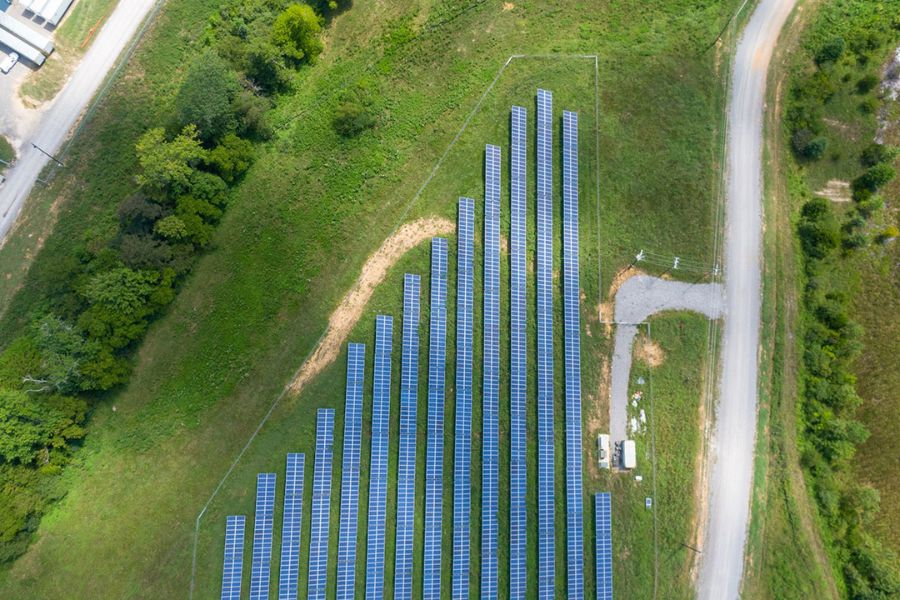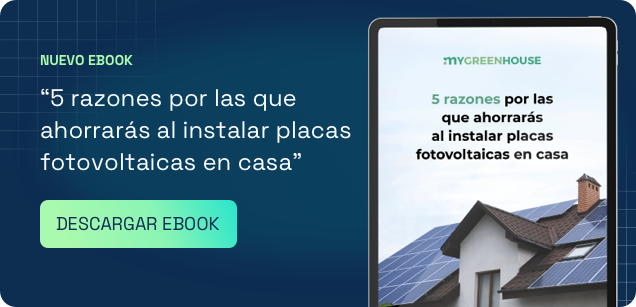The environmental impact of photovoltaic solar panels is currently a hot topic in our country. The differences are clear when compared to fossil fuels, which have to be located, extracted and transported in order to obtain energy. While fossil fuels cause significant ecological degradation and a high risk of pollution and waste, sunlight is free, infinite, and easily accessible.
Solar energy is arguably one of the most planet-friendly forms of energy. This is why many households and businesses are taking the step of installing photovoltaic panels in order to support green energy.
What is the impact of solar energy on the environment?
Here at MyGreenHouse we would like to bring you this brief summary regarding the effects and impact of solar energy and solar panels on the environment:
-
How does solar energy affect…the climate?
Generating solar electricity by means of photovoltaic panels does not require any kind of combustion. The process of transforming radiation into energy doesn’t produce any CO2 emissions or thermal pollution that could trigger the greenhouse effect or increase global warming in any way.
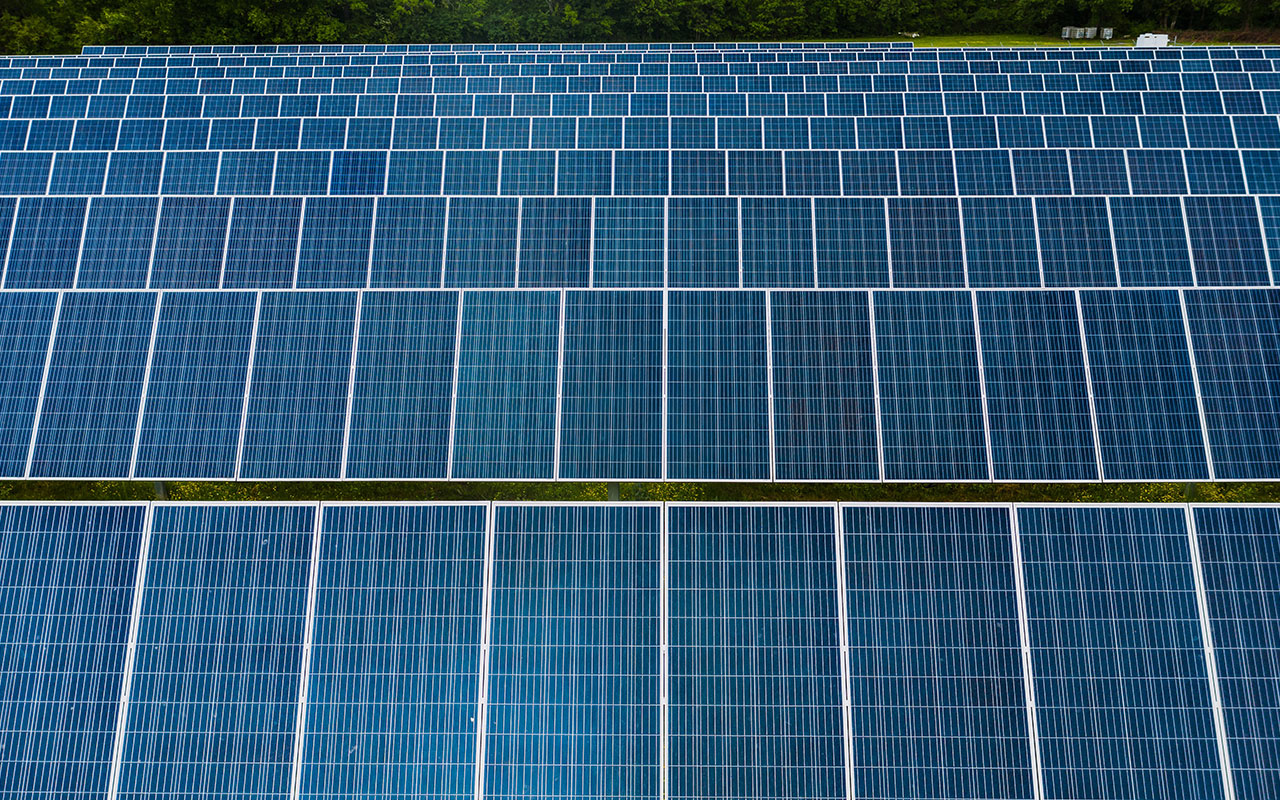
-
How does solar energy affect…the land?
The cells that make up the photovoltaic panels are made from silicon – an element obtained from sand.
The risk of any depletion of sand on our planet is practically non-existent. Moreover, as the quantities of silicon used are minimal, the superficial, topographical or structural characteristics of the terrain are not altered at all in the manufacture of photovoltaic panels. Nor is there any erosion or movement of earth.
In domestic and business self-consumption installations, there is no negative influence at ground level, as the panels are usually installed on roofs.
However, solar farms do require large areas in order to produce electricity on a large scale. Although this doesn’t have any negative effects on the land in the short or long term, it does prevent their use for other purposes. For this reason, arid, contaminated, or polluted land is often chosen to house photovoltaic solar farms.
-
How does solar energy affect…water?
Water is fundamental for life itself, and, at the same time, it is one of the natural resources most at risk of depletion on a planetary scale. Because of this, more and more policies are being put into place to promote water saving and efficient use.
Fortunately, solar energy systems with photovoltaic panels do not require water in order to generate electricity, and so they don’t have any negative impact on aquifers or surface water due to water consumption or contamination from waste or dumping.
-
How does solar energy affect…nature?
Although the solar panels don’t have a positive effect on fauna and flora, neither do they have a negative effect. There is no impact on vegetation at all, and, by eliminating power lines, it is far easier to prevent any negative effects on birds and local wildlife.
Besides this, photovoltaic systems are silent, which is a clear advantage over engine-driven generators for homes and farms.
-
How does solar energy affect…the landscape?
Solar panels create a new urban landscape that, for some people, can create a negative visual impact.
However, thanks to bioclimatic architecture and its aesthetic possibilities, they can be increasingly integrated into all types of structures, homes, and buildings.
Moreover, in most cases, photovoltaic panels are installed on roofs and go virtually unnoticed. There is also the possibility of installing solar tiles, which integrate more positively into the roofs.
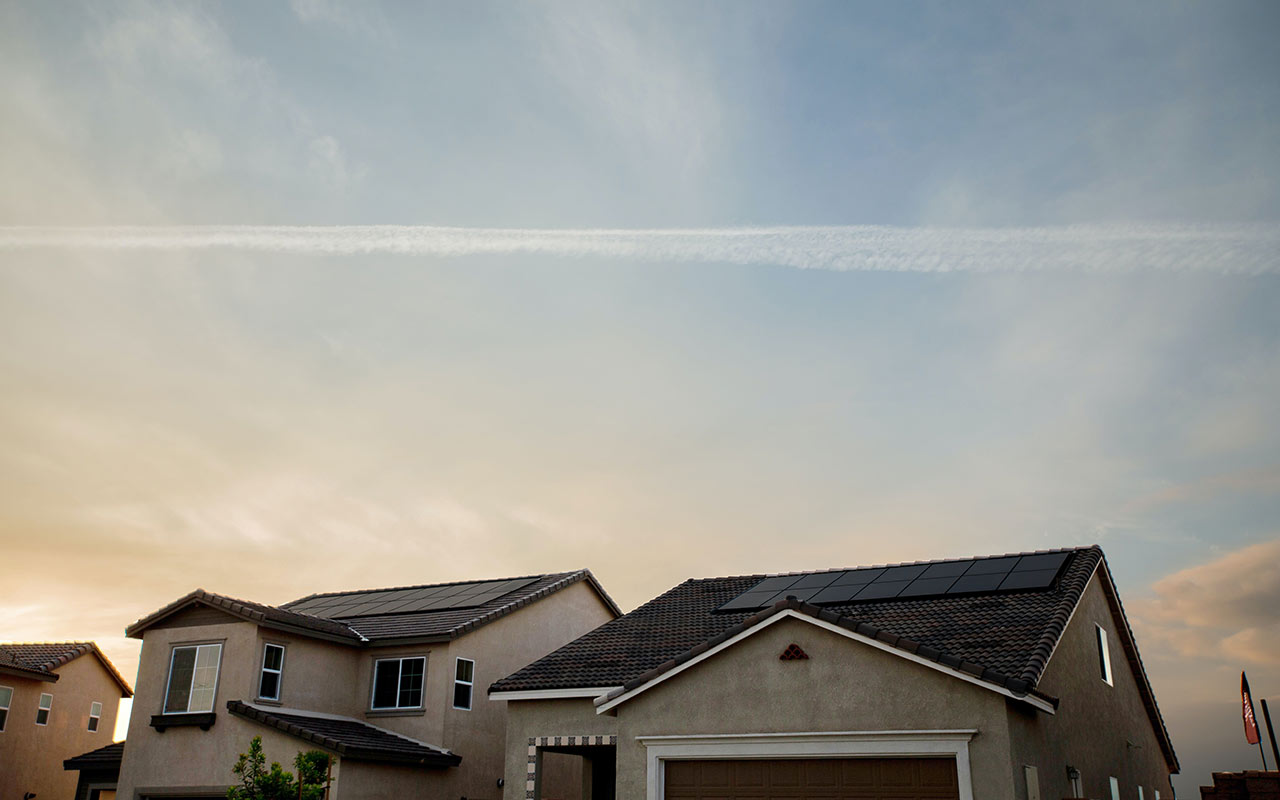
The benefits of photovoltaic solar panels
Renewable energies are currently a viable and responsible alternative for electricity production. To highlight this, we would like to point out the most beneficial effects of solar energy on the environment:
- Solar energy systems don’t require any fuel to operate and don’t emit greenhouse gases. Moreover, the sun is an inexhaustible source of energy.
- Photovoltaic panels don’t produce any noise when converting solar energy into electricity, and this helps to minimise noise pollution.
- Solar and photovoltaic panels have a fairly long lifespan (averaging 25 years). So, once they are installed, you can enjoy clean energy for a very long time.
- When PV equipment and components are no longer used, they have to be disposed of in landfills. However, the solar panels can be recycled up to 98%, as they are made of aluminium and glass, two easily reusable elements. In fact, sufficient technology now exists for the proper handling of solar panels when they reach the end of their useful life.
- Photovoltaic systems and, in general, all systems based on solar energy, are environmentally friendly and are helping to improve the quality of life of future generations.
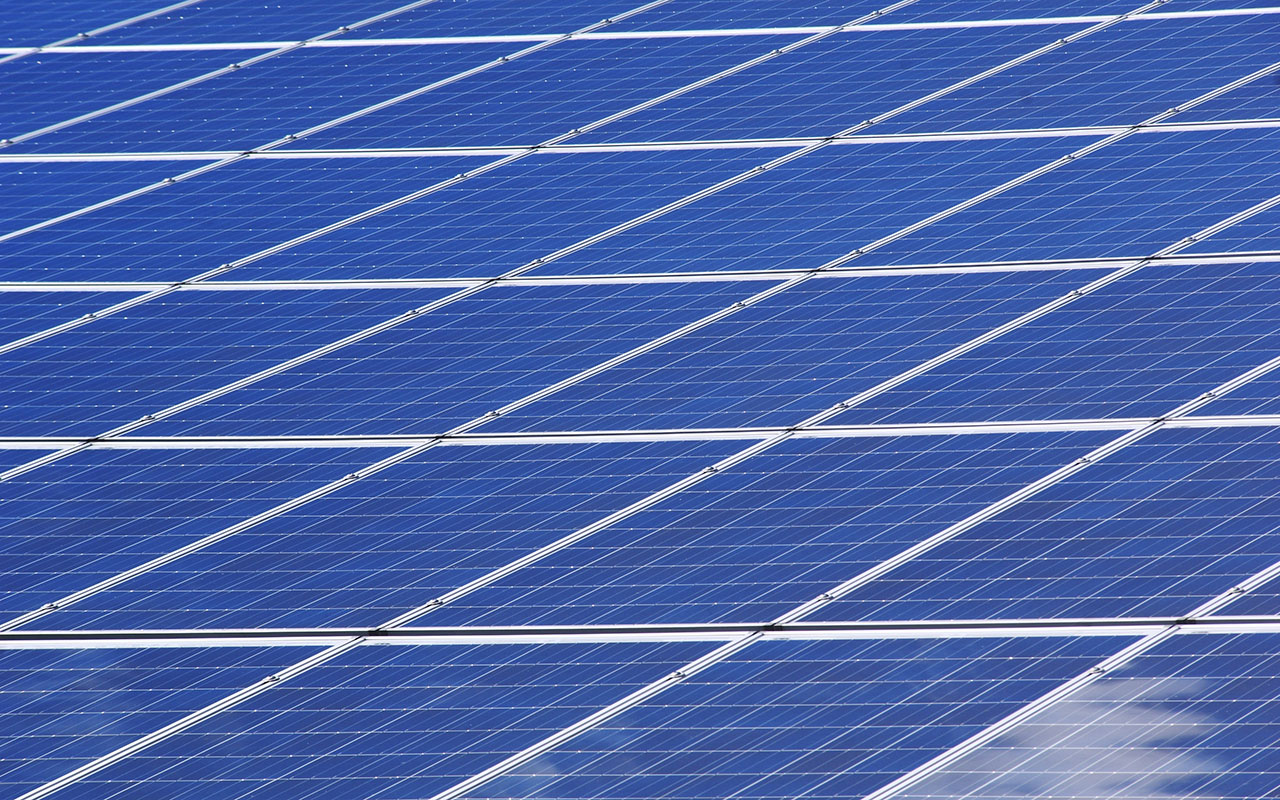
Our dream is to accomplish an energy model based on clean energy, thus creating truly green homes. Do you share this dream too?
Get in touch with us and we will be happy to give you advice with no obligation.
